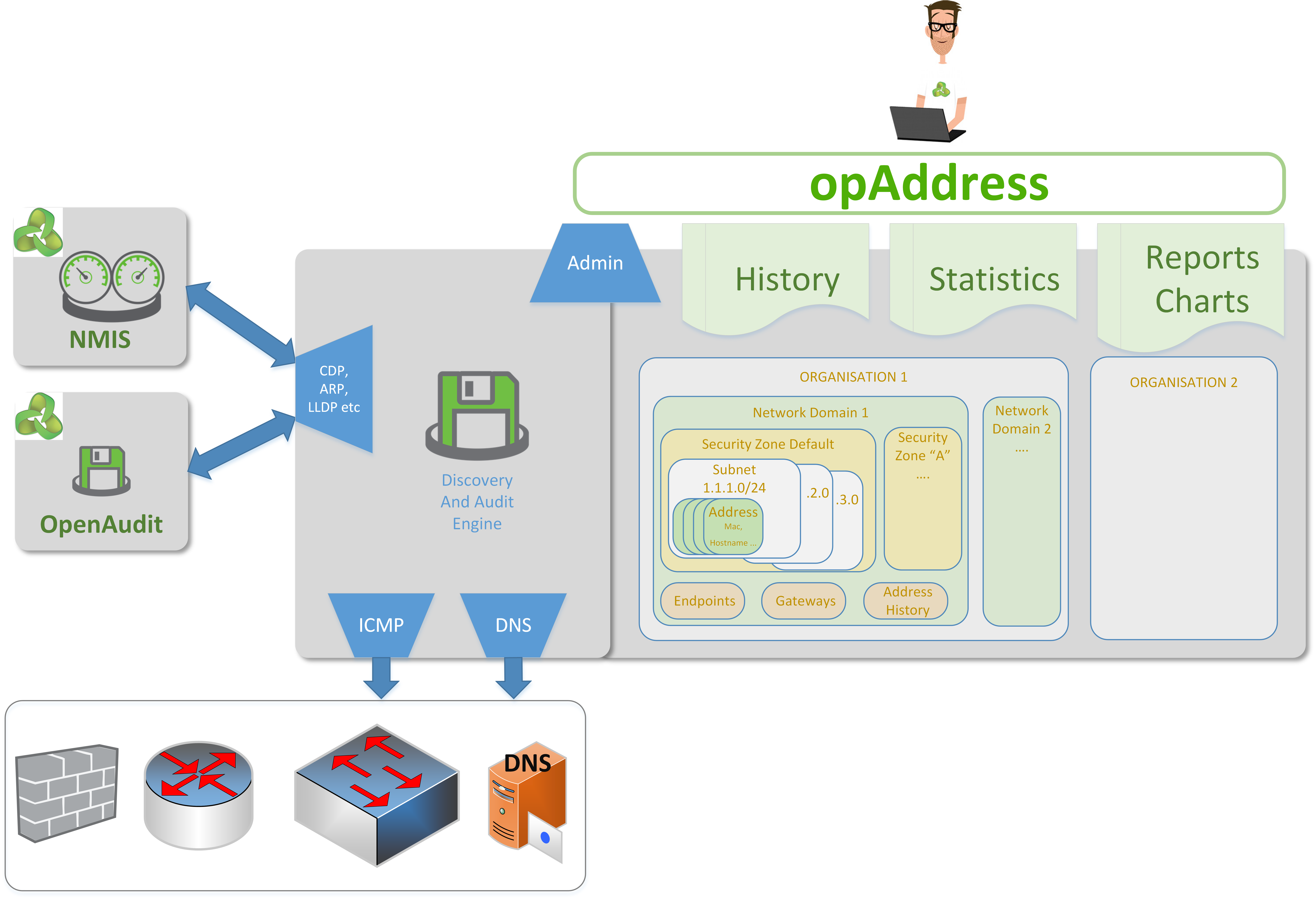

opAddress is designed to collect and build your IP address management information dynamically with little manual input required. It does this by importing information about your network and networked devices from NMIS and/or Open-Audit Enterprise on a daily basis. It makes use of the interface information from these devices (IP address, mask etc) to build a list of known subnets and known IP addresses and known hosts, gateways etc.
The administrator or users can also manually add subnets or edit discovered subnets to complete the picture.
The complete list of subnets allows opAddress to scan your networks every thirty minutes. A list of all possible IP addresses is created from the subnet information and once added to the address table these addresses are then pinged (ICMP) to see what IPs are in use/live, this scan/ping also enables opAddress to retrieve "fresh" MAC address information from your router's ARP tables via NMIS and SNMP. The MAC address from the ARP tables and NMIS interface information creates a table of Endpoints and these endpoints are dynamically associated with the known addresses. We now have a dynamic picture of the addresses, which are/not currently in use (reachbale or unreachable) and we know which endpoint (MAC / host) is using them and we also have a history of addresses used by each endpoint (if the endpoint changes address e.g. a laptop moving between office LANs or to and from WiFi areas).
The final part of the network scan action is to do a DNS lookup for any live IP addresses found. We do a PTR (reverse) Record lookup to find a DNS name from an IP address. Obviously for this to work your DNS services needs to have PTR records recorded. This uses the servers native DNS services to complete this action so DNS needs to be configure on your OS and it needs to be able to access suitable DNS services in your organisation. If you have windows servers providing DHCP services in your organisation then they should provide dynamic PTR records for DHCP leases which is very useful, so make sure your server can access these DNS resources.
Interface listing for each host
Every IP address in every known subnet is pinged
If a live IP is found
The address "Operational Status" is changed to "reachable"
The address "Administrative Status" is changed - what it changes to is configurable in opCommon.nmis / 'opaddress_default_address_state'. I recommend changing this to "allocated" from the default undef/"unkonwn"
The address is associated with an endpoint / MAC address found from the ARP entry / endpoint table
At the end of the subnet_scan the DNS lookups are completed for the live IPs to attempt to find a name.